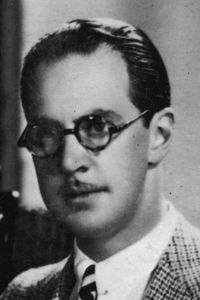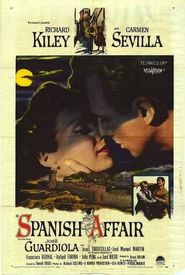Luis Marquina Pichot, a multifaceted individual, emerged on the scene on May 25, 1904, in the vibrant city of Barcelona, where his family's rich artistic and intellectual heritage would have a profound impact on his life's trajectory. His father, Eduardo Marquina, was a celebrated playwright, whose creative endeavors would undoubtedly serve as a source of inspiration for the young Luis. On his maternal side, the Pitxot family boasted a remarkable trio of artistic uncles: Ramón, a talented painter; Ricardo, a cellist who had the privilege of studying under the renowned Pau Casals; Luis, a skilled violinist; and María, an opera singer of great renown, affectionately known as María Gay. The Pitxot family maintained a close and cherished friendship with the Dalí family of Figueras, which would ultimately afford Luis the opportunity to forge a lasting bond with the enigmatic Salvador Dalí, a creative giant who would leave an indelible mark on the world of art.
Marquina Pichot, an individual with a profound affinity for literature and art, defied convention by pursuing a technical career, enrolling in a rigorous academic program to study Industrial Engineering with a specialized focus on the cutting-edge techniques of sound recording, a pioneering field that would ultimately hold significant importance in the advent of sound film.
This exceptional expertise, acquired through his studies, would later prove to be a valuable asset in his professional endeavors, particularly during his tenure as assistant technical sound director at the CEA studios in Ciudad Lineal, where he was appointed in 1933.
During his time at the CEA studios, Pichot had the privilege of working on a diverse array of notable films, including El agua en el suelo, Doña Francisquita, La traviesa molinera, and La Dolorosa, each of which presented unique challenges and opportunities for him to apply his technical knowledge and skills.
In the year 1935, Filmófono, a renowned film production company, with Luis Buñuel at its helm, extended an extraordinary opportunity to the talented Marquina Pichot, offering him the chance to make his directorial debut in the cinematic masterpiece, Don Quintín el amargao.
The following year, Pichot seized the moment, directing what would ultimately be regarded as his crowning achievement, El bailarín y el trabajador, a captivating musical comedy that was skillfully adapted from a comedy penned by the celebrated Spanish playwright, Jacinto Benavente.
Marquina Pichot's life took a dramatic turn during the tumultuous Spanish Civil War, as he sought refuge in Argentina, a country that would provide him with new opportunities to hone his craft. In 1938, he co-directed the production of La chismosa, a film that would showcase his versatility and artistic range. The following year, he penned the screenplay for Así es la vida, a testament to his growing reputation as a writer and storyteller.
Marquina Pichot's cinematic endeavors between 1941 and 1944 were met with a decidedly unenthusiastic response from the critical community, with a few of his films receiving scathing reviews, including the much-maligned Santander, la ciudad en llamas.






















